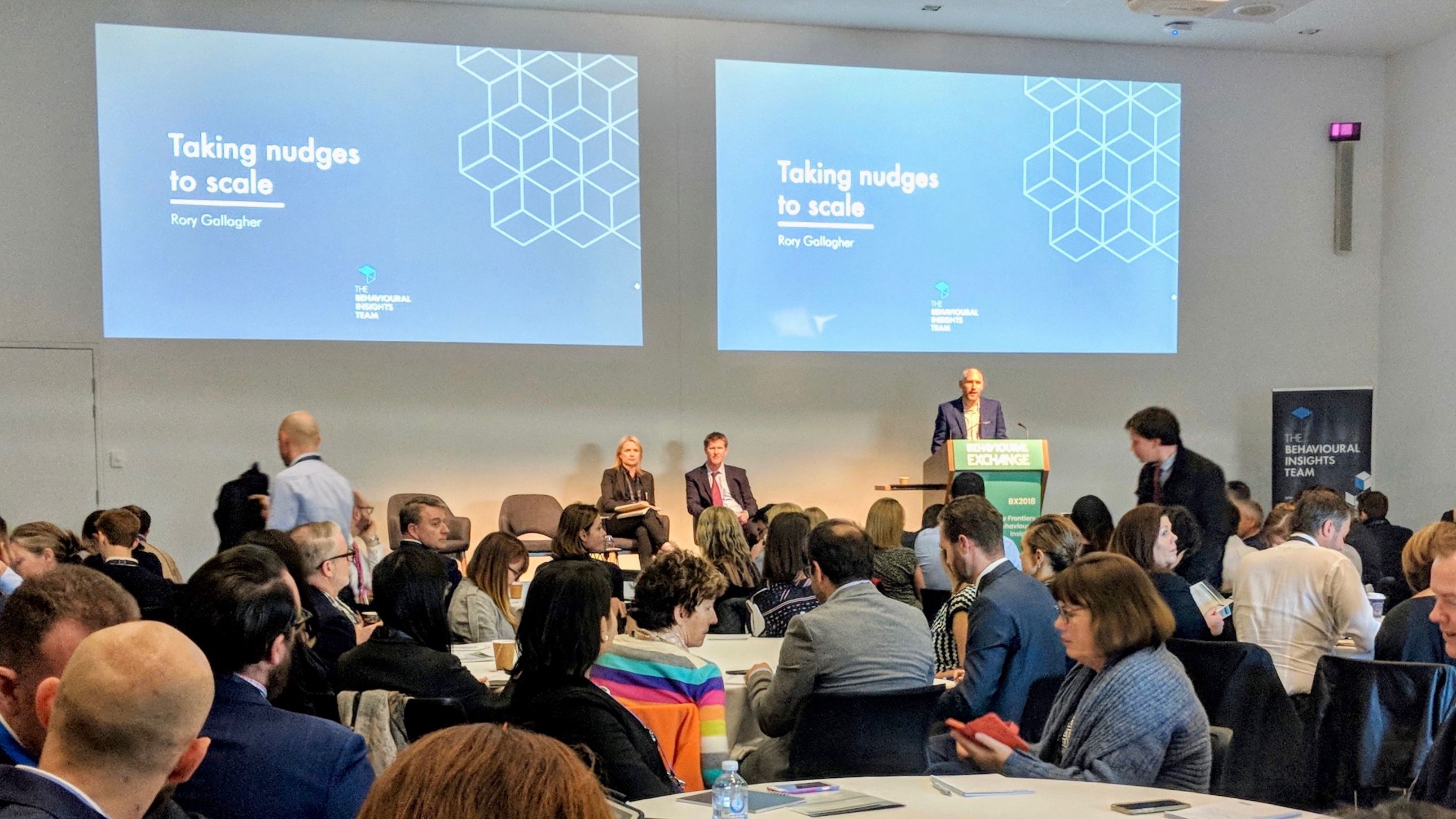Every annual conference faces the challenge of pushing beyond the previous year’s terrain. With its tagline, ‘New Frontiers in Behavioural Insights,’ BETA’s Behavioural Exchange 2018 took this challenge head on. So our Sydney, Singapore, and Wellington teams headed to BX this week with great excitement, and weren’t left disappointed. Without trying to boil the ideas of 70+ speakers down into simplified themes, and with no claims to completeness, here are three of those frontiers that stood out to us:
Navigatibility + Noise
Cass Sunstein argued that the concept of navigability should have its place in the BI firmament alongside the libertarian paternalism Nudge is famous for. Navigable systems give citizens what they need without undue demands on their time or attention, and much of we’re trying to accomplish with behavioural insights can fit under this banner.
Cass also pushed back on the proliferation of ‘explanations’ that just redescribe behaviour in the language of biases. We need to get off that train before anyone has to speak seriously about a ‘bias over-perception bias’. Instead, we should complement an understanding of biases with an understanding of noise – often the larger source of error. Noise is where our judgments – perhaps a doctor’s diagnosis, or a loan officer’s view of a business’s credit worthiness – vary just by chance, with trained professionals disagreeing with each other (or even with their former selves) over identical cases.
If this was an opening salvo, we expect Cass’s upcoming collaboration with Daniel Kahneman and Olivier Sibony to move the field decisively in this direction.
Going big
BX was also a reminder that behavioural insights can only reach its potential as an approach if our interventions get taken to scale.
The head of our Sydney office, Rory Gallagher, facilitated a session on ‘Taking nudges to scale’, where Bruce Cunningham of the Dept. of Jobs and Small Business, Edwina Crawford of the NSW Dept. of Justice Aboriginal Services Unit, and Robyn Mildon of CEI, shared their tips on scaling and examples of where this has been done well. The levels of interest in this session and in scaling throughout the conference leave us cautiously optimistic about the opportunities for going big.
John List encouraged us to look past the inevitable ‘voltage drop’ in effect size when taking interventions to scale, and instead fix our gaze on what happens to the benefit-cost ratio and what’s going on in the evidence ‘market’ between researchers, policy makers, and the wider public.
And David Halpern also challenged us to keep setting our sights higher: BI can and should be used to halve childhood obesity over the next decade, as targeted by the UK’s newly published strategy; shift the behaviour of markets and technology giants; and get a grip on macroeconomic issues so far untouched by behavioural approaches. So, it sounds like we’ll be busy until the next BX.
Nudger, nudge thyself
A third, more introspective frontier is how ‘nudgers’ think about and nudge themselves. Varun Gauri used experiments at the World Bank to show that policy officials aren’t immune to cognitive biases and, as Kate Glazebrook argued, we need to get used to saying “we” when talking about human foibles. Biases don’t just happen to other people.
And we need to keep coming back to the ethics of applying behavioural science in every intervention and trial we run. To that end, Cass debuted a ‘Bill of Rights for Nudging’, starting with the values and interests of citizens, and then ‘nudging for good’ with a close eye on the legitimacy of our goals.
Finally…
We should note that we were very happy to be designated the Jedi of Cass Sunstein’s Star Wars-Behavioural Insights Expanded Universe. To mix our metaphors (and our science fiction franchises), as new frontiers open up before us, with our fellow BXers we are excited now to boldly go where no BI-Jedi has gone before.

